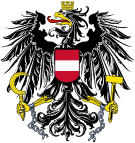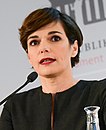| |||||||||||||||||||||||||||||||||||||||||||||||||||||||||||||||||||||||||||
All 183 seats in the National Council 92 seats needed for a majority | |||||||||||||||||||||||||||||||||||||||||||||||||||||||||||||||||||||||||||
|---|---|---|---|---|---|---|---|---|---|---|---|---|---|---|---|---|---|---|---|---|---|---|---|---|---|---|---|---|---|---|---|---|---|---|---|---|---|---|---|---|---|---|---|---|---|---|---|---|---|---|---|---|---|---|---|---|---|---|---|---|---|---|---|---|---|---|---|---|---|---|---|---|---|---|---|
| Opinion polls | |||||||||||||||||||||||||||||||||||||||||||||||||||||||||||||||||||||||||||
| Turnout | 75.6% ( | ||||||||||||||||||||||||||||||||||||||||||||||||||||||||||||||||||||||||||
| |||||||||||||||||||||||||||||||||||||||||||||||||||||||||||||||||||||||||||
| |||||||||||||||||||||||||||||||||||||||||||||||||||||||||||||||||||||||||||
| This article is part of a series on the |
| Politics of Austria |
|---|
 |
Legislative elections were held in Austria on 29 September 2019 to elect the 27th National Council, the lower house of Austria's bicameral parliament. The snap election was called in the wake of the Ibiza affair in May, which caused the resignation of Vice Chancellor Heinz-Christian Strache and the collapse of the governing coalition of the Austrian People's Party (ÖVP) and Freedom Party of Austria (FPÖ). The government subsequently lost a motion of no confidence in parliament, before ÖVP Chancellor Sebastian Kurz was replaced by non-partisan Brigitte Bierlein on an interim basis.
The conservative ÖVP achieved its best result since 2002, improving its vote share six percentage points. The centre-left Social Democratic Party (SPÖ) won just 21.2%, its worst result in over a century. The FPÖ suffered a substantial loss of almost ten points. The Greens re-entered the National Council after falling out in 2017, and achieved their best ever result with 13.9% and 26 seats. NEOS improved from 2017, rising from 10 to 15 seats.
With the ÖVP in a clear position to lead the new government, it held talks with all other parties. By early November, a coalition with The Greens was seen as the most likely outcome. Negotiations continued through December, and on 1 January, ÖVP leader Kurz and Greens leader Werner Kogler announced the formation of a coalition government between their two parties. The government was sworn in on 7 January 2020 as Second Kurz government, with Sebastian Kurz returning as Chancellor and Kogler taking office as Vice Chancellor.









